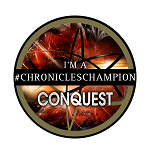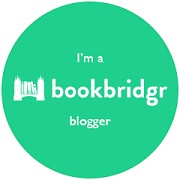I asked 3 authors to tell me their thoughts on Traditional publishing and Self publishing – later in the week you can hear from Ken Mooney and Neil Bursnoll, but today its the turn of Dean Crawford who has been traditionally published and has since self published. Thank you to all for taking part!
When I started writing way back in 1995, self-publishing was virtually impossible in any reasonable numbers without a considerable financial investment. For decades traditional publishing houses had held sway over who did and did not get published, for only they could afford the expense of national and international distribution. Fifteen long years later, when I signed my first publishing deal, things had changed considerably and publishing was teetering on the edge of a new era. Now, the game has changed completely with the rise of Kindle Direct Publishing, CreateSpace, Smashwords and many others.
I have had five novels internationally published in my career so far ( by Simon & Schuster and Touchstone USA ). I sold around 100,000 copies in my first year of publication, some of those titles have been Sunday Times best sellers and from time to time I’ve been contacted directly regarding the movie rights to those books by Hollywood film producers. You’d think that I was safe and sound, right? Looking forward to a long and happily published career ahead? The truth is very different. Many authors I have met in my career have since returned to day-jobs to pay the bills. Others soon will do. Although I’m still full-time as an author and will be for many years yet, one of my novels, a post-apocalyptic thriller entitled Eden, was sent to publishers on both sides of the Atlantic and was roundly rejected by all of them. My agent, Luigi Bonomi, was stunned. So was I. Had I written a terrible book? Had we made some error of judgement?
As it turned out, no. Major publishers obsessed with contracting their lists to contain only the types of books selling at any given time in BIG numbers were not looking for male-orientated action-adventure novels. They were looking for female-orientated, darkly psychological tales: the next Gillian Flynn, or the next 50 Shades. Eden just wasn’t a viable purchase for them at the time.
Left with a perfectly good book with nowhere to go, I decided to take the plunge and self-publish it instead. I did some research, learned how to convert the novel to HTML, designed a good cover and contacted bloggers for reviews. I figured there was no point in buying advertising, because I wasn’t likely to reach far into the charts given that there are about 750,000 e-books on Amazon UK and over two million in the USA. I had been told by many people that if I self-published I was doomed; “traditional publishers won’t like it”; “sales will be negligible”; “you’re wasting your time”. With a heavy heart I published Eden exclusively to Kindle, hoping that it might sell a few copies here and there, maybe get my name known in a different genre. It might even earn me a few quid if I was super-lucky.
Six months later, it has sold some 14,000 copies and ranked high in the Paid Kindle charts on both sides of the Atlantic, reaching #1 in the Post-Apocalyptic sub-category and seen me feature as one of Amazon.com’s Top 100 authors by sales of that one book alone.
It’s only fair to point out that with a decent portfolio of traditionally published books behind me I had a better ‘launch-pad’ for success than somebody starting out from scratch. However I was and still am utterly stunned by Eden’s sales, so much so that I have since released further titles under the banner of my company, Fictum Ltd: Holo Sapiens and Revolution. Both titles are selling well. In 2014, I will be releasing sequels to Eden and Holo Sapiens, as well as a series of novellas entitled Survivor: nine volumes each released at the beginning of each month from May onwards in the manner of a TV drama.
The publishing world has changed completely in just a couple of hugely eventful years. Publishers are trying to stem the tide of e-publishing but I think that they need to adapt and embrace the new model or render themselves irrelevant. There are first-time, self-published authors out there who have worked hard to publicise themselves and gone on to sell 100,000 copies of their books in a single year, reaping 70% royalties at the same time. Few traditional advances and publishing deals with their 12.5% royalty rates can compete with that.
Does that mean that in the future I will only self-publish? No. I like working with publishing teams, and the big houses can reach far broader audiences than Amazon, especially in translations and subsidiary deals. As I write this I am working on two projects for my literary agent that will be sent to the major publishing houses for consideration. I hope that they will be bought and sold in countries all around the world. But if they’re turned down then I will self-publish them, because I can’t think of a single good reason not to. They’ll never be off the shelves. They’ll never go out of print. I can boost publicity for them at will, edit mistakes whenever I want or change the cover if I feel it’s not working well. If it is selling well, I might find it sitting next to BIG NAME authors in various categories or appearing as a “customers also bought this” title, giving a huge boost in potential recognition and thus another avenue to bigger sales. In effect I am a miniature publishing house, minus the hundreds of staff, printing costs and big-city overheads.
It’s becoming ever harder to get noticed, however, and just like traditional publishing a few big names take the lion’s share of the sales while the majority lie in obscurity far down the rankings. But, and it’s a big but, even the authors who have not yet been noticed HAVE been published. Their books are not gathering dust in a drawer somewhere or languishing on a hard-drive. They’re working their way up the Amazon ranks, and the authors are publishing new books and gaining followers and fans as they go. Some end up being signed to leading literary agents and establishing traditional deals as a result of strong digital sales ( there’s irony for you, eh? ).
Today, self-publishing is no longer just for authors who for whatever reason could not find an agent or a traditional publishing deal. Today, it is a viable place to both begin and build an entire publishing career. And it’s definitely here to stay.
Thank you so much Dean!
You can follow Dean on Twitter here: https://twitter.com/DCrawfordBooks
Purchase information : http://www.amazon.co.uk/Dean-Crawford/e/B004UO651U/ref=sr_tc_2_0?qid=1391501807&sr=1-2-ent
Happy Reading Folks!







